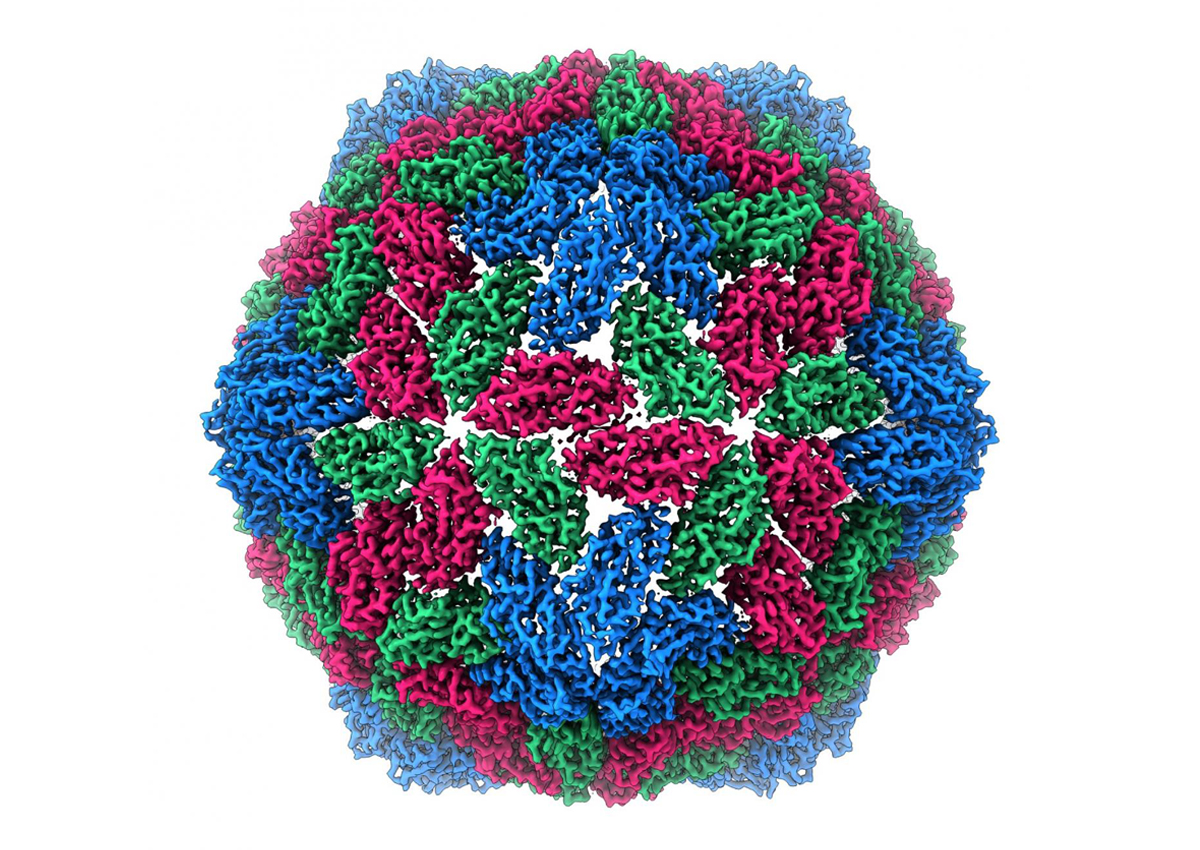
Family of Crop Viruses Shown at High Resolution for the First Time
October 16, 2019| |
For the first time, the world's deadliest crop killers are revealed at a molecular level. The Luteoviridae are pathogenic viruses that cause major crop losses worldwide. However, researchers have been unable to generate the quantities of these viruses needed to study them in high resolution. Now a group of researchers at John Innes Centre and the Astbury Biostructure Laboratory at the University of Leeds used recent advances in plant expression technology to derive sufficient quantities of the pathogen to create a more detailed scrutiny with state of the art microscopy techniques.
The method the researchers used involves infiltrating a tobacco plant with the genes necessary to create virus-like particles (VLPs). Using the VLPs, the team observed the viral structures to high resolution by cryo-electron microscopy. This provided, for the first time, a molecular-level insight into how the luteovirid capsid forms and suggests how it is transmitted by aphids.
The Luteoviridae are transmitted by aphids, and infect a wide range of food crops including cereals, legumes, cucurbits, sugar beets, sugarcane, and potato. These viruses attack the plant vasculature which causes severe stunting leading to crop loss. The family includes barley yellow dwarf virus and potato leafroll virus.
For more details, read the article in John Innes Centre website.
| |
You might also like:
- Plant Virus and Insect Virus Connive for Greater Infestation
- Genome Editing Could be Used to Engineer Resistance to Virus and Cold-induced Sweetening in Potato
- Scientists Develop Virus-Resistant Tobacco Using Gene Technology
Biotech Updates is a weekly newsletter of ISAAA, a not-for-profit organization. It is distributed for free to over 22,000 subscribers worldwide to inform them about the key developments in biosciences, especially in biotechnology. Your support will help us in our mission to feed the world with knowledge. You can help by donating as little as $10.
-
See more articles:
-
News from Around the World
- 14% of Global Food Goes to Waste, FAO Reports
- Study Reveals the Resilience of Rice to Floods
- Hornless Cattle Now Possible Thanks to Genome-editing
- FDA Approves Texas A&M's Ultra-Low Gossypol Cotton for Human and Animal Consumption
- Genomics-Assisted Breeding Delivers Two Improved Chickpea Varieties in Record Time
- Family of Crop Viruses Shown at High Resolution for the First Time
-
Research Highlights
- Plant Protein that Triggers Photoprotection Identified
- Genetically Engineered Plants Occur in Large Scale Naturally
-
Plant
- NAL8 Contributes to Leaf and Spikelet Development in Rice
- Large-scale Genomics for Wheat Improvement
-
Read the latest: - Biotech Updates (December 17, 2025)
- Gene Editing Supplement (December 17, 2025)
- Gene Drive Supplement (February 22, 2023)
-
Subscribe to BU: - Share
- Tweet

